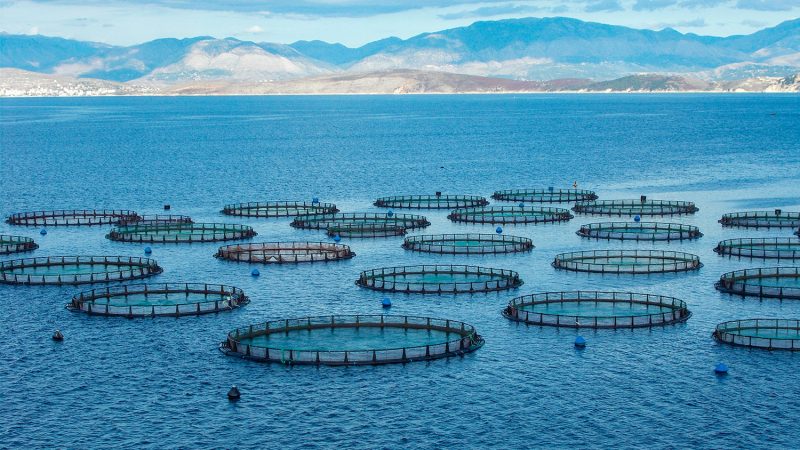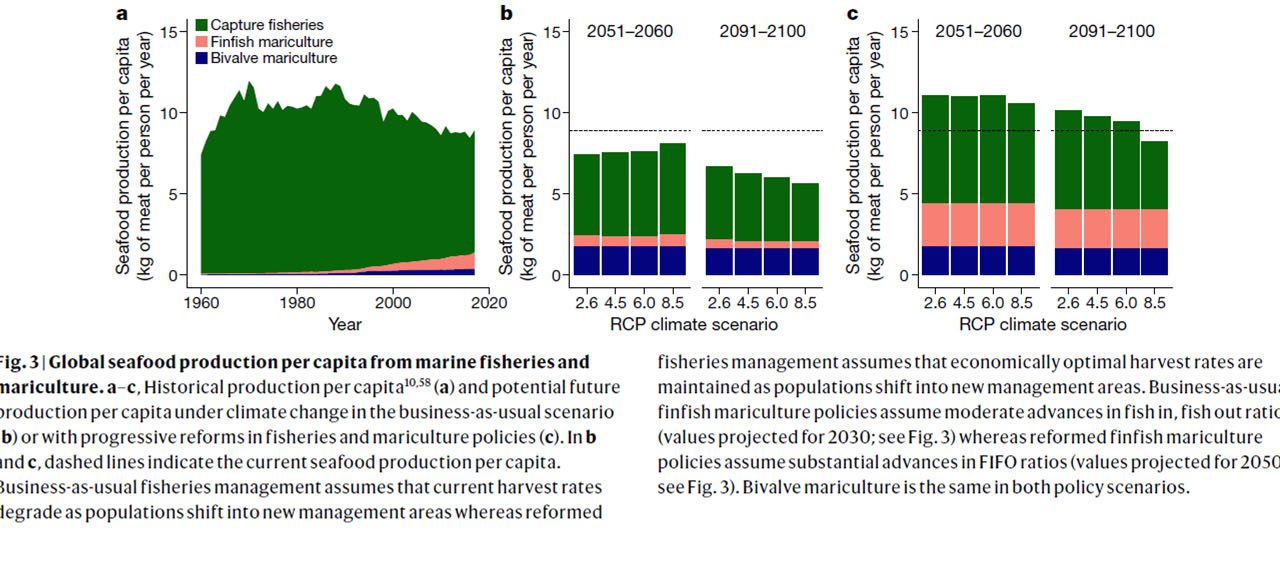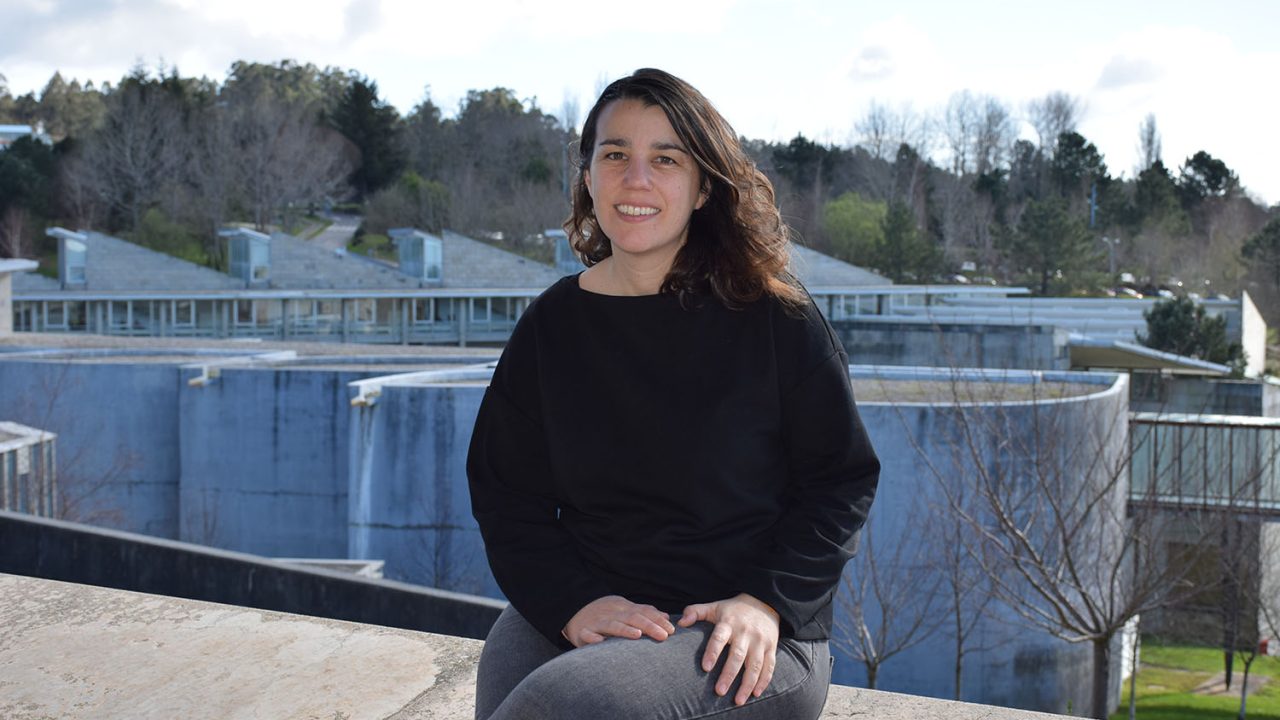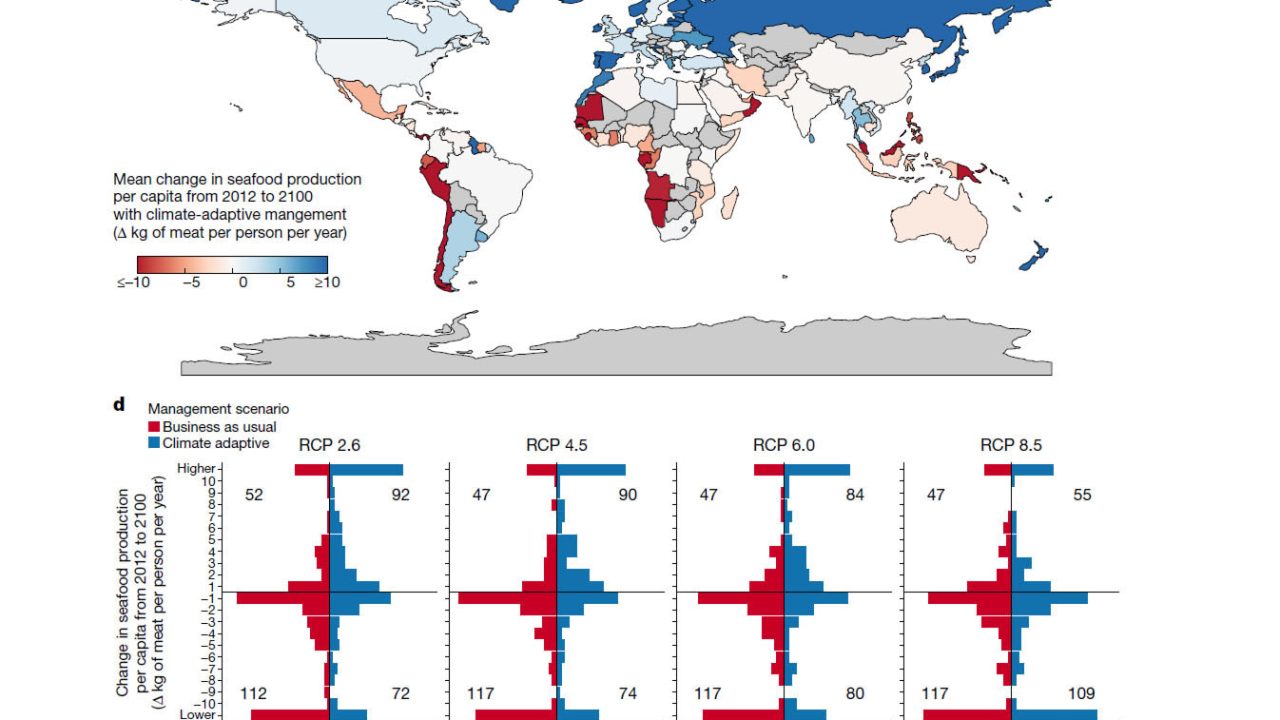According to an article published by ‘Nature’ in which CIM-UVigo researcher Elena Ojea participates and which addresses for the first time globally the relationship between fishing and aquaculture with climate change
In a scenario of gradual increase in world population, researchers from universities and scientific institutions in the US, Spain, Australia, Japan, Iceland, the Philippines and the United Kingdom point out in an article published in Nature that although climate change will challenge the ability of the oceans to meet the growing demand for food, its production could be increased through rapid and ambitious action to reduce greenhouse gas emissions, as well as reforming fisheries and expanding sustainable mariculture (marine aquaculture). The authors of Expanding ocean food production under climate change focus on the fact that the future of seafood depends on human responses to climate change, while warning that fisheries reforms, although necessary, will be insufficient to sustain fish and shellfish production per capita, even with aggressive reductions in emissions. However, the potential of sustainable mariculture, researchers say, could increase production, although these increases are subject to fisheries reforms, advances in feed production technologies, the establishment of effective mariculture, as well as a drastic reduction in emissions. And it is that, according to the authors of the article, climate change is not the most limiting factor for the sustainable expansion of mariculture.
Elena Ojea, a researcher in the Future Oceans Lab group at the Marine Research Center of the University of Vigo and the only Spanish author of the article published today in Nature, considers this work a novelty because “the relationship between fishing and aquaculture has never been seen globally under climate change, in the sense that fisheries production and mariculture can be offset or planned at the country level under different future scenarios ”. With a more cross-cutting approach to sea food, in Expanding ocean food production under climate change, “we focus on declining emissions scenarios, we see that major fisheries reforms are needed, such as international agreements and adaptive management,” she said. However, the work concludes that, although a comprehensive fisheries reform is performed, which is necessary, there are locations where it will not be enough, and the impact of climate change will be negative and cannot be offset by adaptations. “In these cases, we see that a sustainable expansion of mariculture can compensate for fishing losses. That is why we are recommending the possibility of investing in sustainable marine aquaculture in these places “, explains Ojea.
Low-income tropical countries, the most affected
The article, which also concludes that reforms will be increasingly difficult to implement with worsening climate change, warns that their disproportionate effects on low-income tropical countries could exacerbate existing economic problems. Researchers consider the reforms outlined to be ambitious but achievable, and while acknowledging the improvement in management achieved in more than half of the world’s fisheries, they note that progress is focused on higher-income countries, so they must be implemented in regions with fewer economic resources, thus contributing to the UN Sustainable Development Goals.
The study, published today in Nature, should be considered, according to its authors, an approach to the problem that shows that there is ample potential for the expansion of sea food, but for local action will need more evidence and analysis that remain to be seen at this level, such as access to resources for the local population, or the planning needed to expand mariculture. However, the message of mitigating climate change to promote sea food in the future is clear and in this area all countries can collaborate with their emission reduction commitments”says Ojea on the research.
A transversal and mechanistic approach
Elena Ojea began collaborating with the University of California Santa Bárbara’s sustainable fishing group in 2013, and today’s Nature article emerged from a stay in 2019, when they began working on a report for the High Level Panel for a Sustainable Ocean Economy. (Ocean Panel), which eventually evolved into the publication Expanding ocean food production under climate change. “My participation was born with the conception of the study together with researchers from Santa Bárbara, where during my postdoc we discussed how to project the impacts of climate change on fisheries production. Thanks to the technical and personnel capacity they have there, several analyses emerged combining climate and ecological models with economic projections and I have been able to collaborate closely in these analyses and projections and have helped to interpret the results and implications for the future of marine food”, explains UVigo’s Future Oceans Lab researcher.
Ojea believes that participating in this research has provided her a “cross-cutting and mechanistic” approach to understanding how global fisheries analyses are conducted under the impacts of climate change, “and the fact is that there are few models that can be used and this publication is one of them. Thanks to this article and my work at the IPCC, I now have a deep vision of what we have behind the studies that appear, and of everything that science achieves and can improve, ”said the researcher.
Source: DUVI




